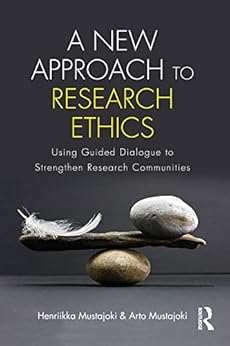New approach to research ethics
Ethics is often understood as a set of rules which have to be followed. In the  recent book New approach to research ethics (Routledge, 2017), we present an alternative view on ethics. Official guidelines and rules create the foundation for research ethics but, for several reasons, they are not a sufficient tool for creating ethical awareness within a research community. Lists of types of unethical behaviour can never cover all the problematic questions researches face in their work and there is a vast grey area of everyday cases, which cannot be solving by a simple black-and-white or right-and-wrong approach. A new approach is necessary.
recent book New approach to research ethics (Routledge, 2017), we present an alternative view on ethics. Official guidelines and rules create the foundation for research ethics but, for several reasons, they are not a sufficient tool for creating ethical awareness within a research community. Lists of types of unethical behaviour can never cover all the problematic questions researches face in their work and there is a vast grey area of everyday cases, which cannot be solving by a simple black-and-white or right-and-wrong approach. A new approach is necessary.
In the framework we offer, ethical reasoning is an inherent part of the working culture of researcher communities. It travels with researchers when they navigate through their everyday life continuously facing ethically loaded choices and options. For that purpose, we provide a toolbox, which enables a transparent procedure to reach a reasonable outcome in cases, which cannot have evident solutions.
Transparency is created by a systematic procedure of decision-making. Based on this, it is possible to conduct a guided dialogue with colleagues – and with oneself. The procedure consists of two stages. At the first stage, the stakeholders of the case and their rights and responsibilities are determined. At the same time different options should be spelled out. There are always at least two options: to do something or not to do. At the second stage, three ethical approaches are applied to the case in hand: consequentialist, principled and virtue ethical.
A further new element in our approach is a wider understanding of the ethical reasoning, which is needed in researchers’ life. Researchers face ethically challenging questions not only in doing research and publishing but also in supervising students, in recruiting new people, and in assessing research applications, research by peer review and evaluating merits of their colleagues. Media, in its various forms, is a new sphere with increasing importance. These contacts are not very frequent, but are they important for the researcher. For most researchers this is an unfamiliar landscape, which may frighten with its own goals, rules and traditions.